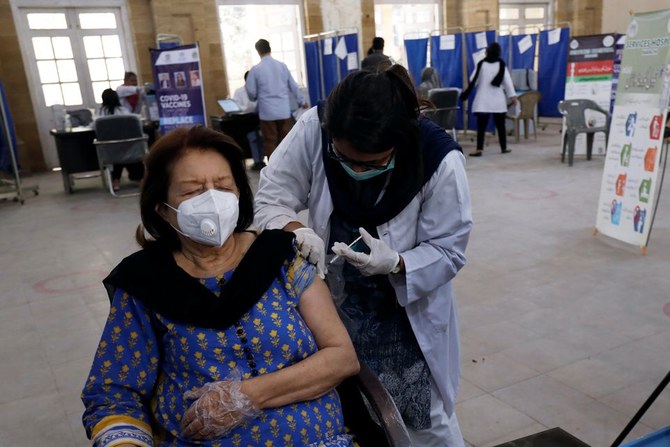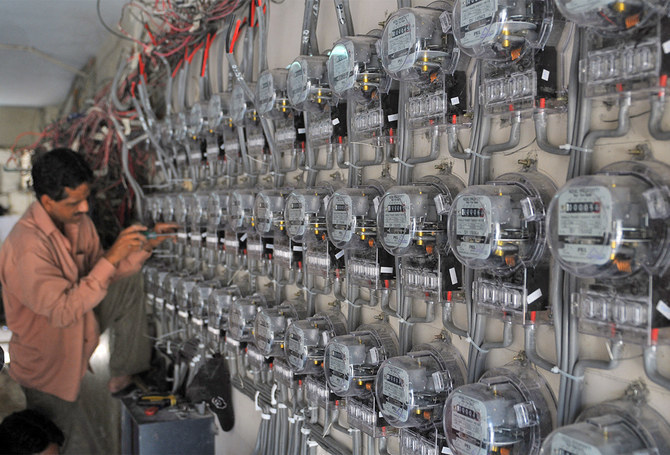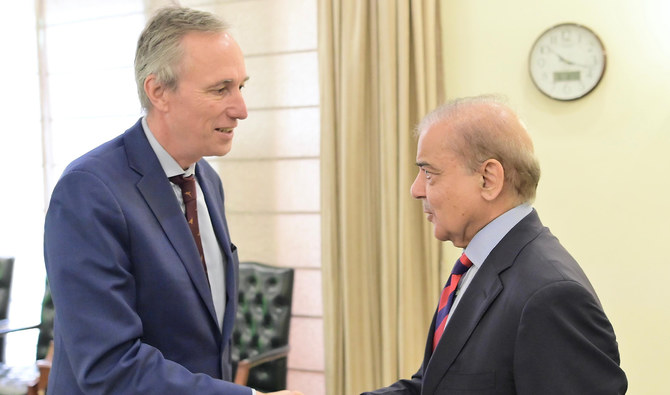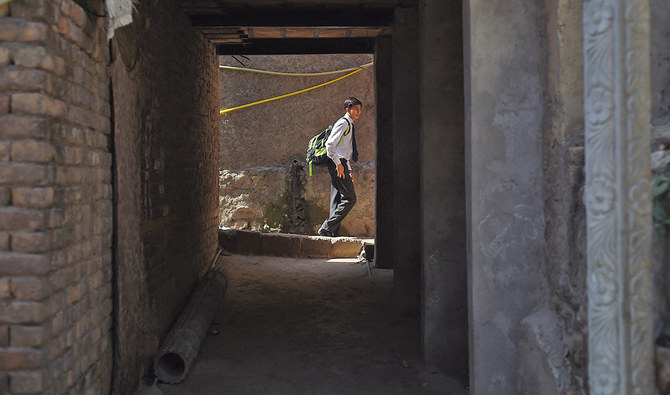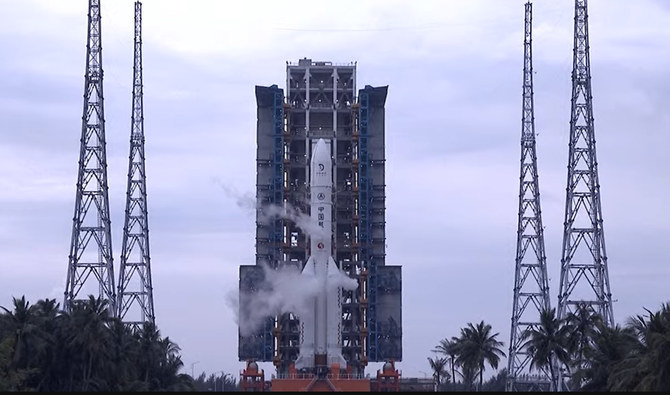KARACHI: Health authorities in Pakistan’s southern Sindh province said on Friday they were boosting COVID-19 vaccination with a door-to-door campaign for largely unvaccinated, stay-at-home women to contain the spread of the virus, which is surging in the seaside metropolis of Karachi with omicron now a predominant strain.
Karachi, the capital of the Sindh province, reported 648 virus cases in the last 24 hours. According to the Sindh health department, these cases included 136 confirmed and 56 suspected cases of the omicron strain.
Of the total cases, 43 or 22 percent, were detected at the Karachi airport and one was a foreign national among them. The city also reported Pakistan’s first case of omicron variant on December 13, 2021.
The omicron strain has higher transmissibility than other variants. It first emerged in South Africa in November 2021 and spread across nearly 90 countries within a few weeks of its discovery.
““All we are doing now is close monitoring, testing and contact tracing. We have also decided to start door-to-door campaign to inoculate non-working women who we found are mostly unvaccinated,” Qasim Soomro, parliamentary secretary for health, told Arab News, adding these women infected others by going shopping and attending functions.
The health department has administered at least one dose of COVID-19 vaccines to 54.90 percent of eligible population or 34,884,688 people in the province. In Karachi, the ratio is 52.09 percent, where 6,157,220 of its 12,851,276 eligible population above the age of 12 years are still unvaccinated. The target in the port city, according to official figures, had been 85,000 doses per day till December 31, 2021, but data shows only 28,377 people received a vaccine dose over last 24 hours.
“The first patient of omicron in Karachi had also contracted virus at a wedding ceremony,” Soomro said, adding while working women either volunteered or were compelled to get the jabs because of jobs, stay-at-home women had mostly been unvaccinated.
He said they would send lady health workers (LHWs) or women vaccinators to each and every house to vaccinate people, particularly women, against COVID-19.
There was a surge in cases but no immediate burden on hospitals, hence no strict measures, including closure of businesses or schools was under consideration, the official said.
“Usually, hospitals start receiving patients two weeks after a surge like we have witnessed in the past [COVID-19] waves. We are not placing any restrictions but accelerating the vaccination process,” Soomro said.
Dr. Faisal Mahmood, an associate professor for infectious diseases at the Aga Khan University who treated Pakistan’s first COVID-19 patient in February 2020, said both vaccination and strict measures were important as omicron, which was now a dominant strain, could burden the health care system despite the fact that it was less severe.
“We are seeing that the omicron variant is spreading rapidly in Karachi. Most of the cases that we are seeing now in patients are of omicron. And over the last few weeks, this has become a predominant variant, having infected patients with COVID,” Dr. Mehmood said.
“The most important thing,” he said, “is that we take precautions and this includes all precautions, such as wearing masks in public, staying away from crowded areas and making sure that the area you’re in is ventilated.”
He urged the masses to get vaccinated or a booster shot, in case it had been six months since they received their final dose of a COVID-19 vaccine.
“If you have any symptoms, such as a runny nose or a mild cough, do get tested because this might be COVID and you might be infecting others,” the expert said.
He said compared to the delta variants, the omicron strain spread more rapidly and it could infect people, who had had COVID-19 in the past or those who had been vaccinated.
“The danger over here is that the total number of patients infected may be higher, even though the disease may not be as severe. Keep in mind that the disease with omicron is not mild, it is just less severe,” Dr. Mehmood warned.
“And if the total number of people infected are very high, this will lead to an increased burden on the health care system once again.”
He said the number of virus cases could be several times higher than what was being reported as people who had symptoms were not getting tested as frequently as they did in the past.
“This increase should lead to additional measures, restricting patients or restricting movement of individuals as we did during previous [COVID-19] waves like restricting gatherings and closing wedding halls and restaurants,” he suggested.



